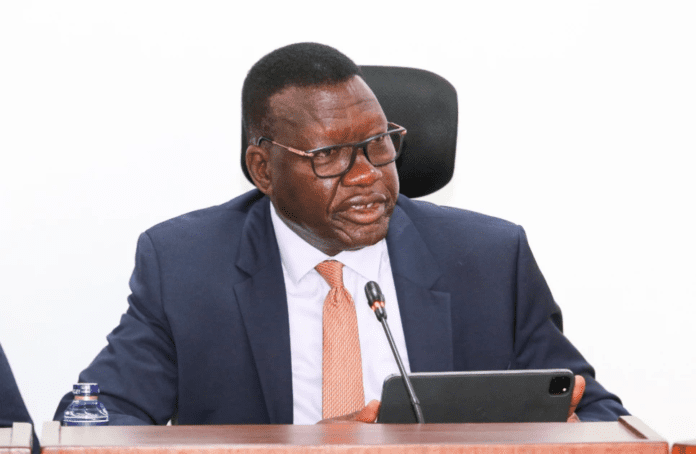The government has unveiled a plan to generate Sh175 billion through a bond issuance backed by the Road Maintenance Levy Fund, aiming to clear outstanding debts owed to road contractors that have stalled infrastructure projects nationwide.
Speaking during a recent briefing, Roads and Transport Cabinet Secretary Davis Chirchir announced that a portion of the Sh25 collected per litre of fuel under the levy will be used to finance the initiative. Specifically, Sh7 per litre will be securitised to raise the targeted amount.
Many road development projects across the country have ground to a halt due to delayed payments, leaving hundreds of roads incomplete in multiple counties.
“In almost every county, there are multiple roads that have been abandoned. We realised the only viable solution was to mobilise Sh175 billion—an amount equivalent to what we owe contractors,” said Chirchir.
The government, through the Kenya Roads Board, will now convert the Sh7 levy into a financial asset that can attract investment, mainly from institutional players. This will enable the state to raise funds upfront and begin clearing the backlog of payments.
“With Parliament’s approval last year to increase the road levy by Sh7, we made a strategic move to securitise that amount. This will allow us to issue a bond to raise the Sh175 billion needed to pay off our contractors,” Chirchir explained.
He noted that unlocking these payments would have a ripple effect across various sectors of the economy—reviving the construction industry, stabilising employment in the sector, and easing pressure on financial institutions that have extended credit to contractors awaiting government settlement.
“This directly supports GDP growth through the construction industry. It will help pay suppliers, revive jobs, and assist banks grappling with non-performing loans tied to government certificates held by contractors,” he added.
Though the bond has not yet been floated, the government has already secured a loan to cover an initial 40 per cent of the pending payments. Chirchir noted that within 120 days, the bond will be issued, and proceeds will be used to repay the loan and settle the remaining contractor dues.
According to the plan, 80 per cent of the funding will be sourced from international markets, while the remaining 20 per cent will be raised domestically.





![SHA Suspends Dozens of Health Facilities Over Alleged Fraud [LIST]](https://citymirror.ke/wp-content/uploads/2024/12/image-14-218x150.png)

